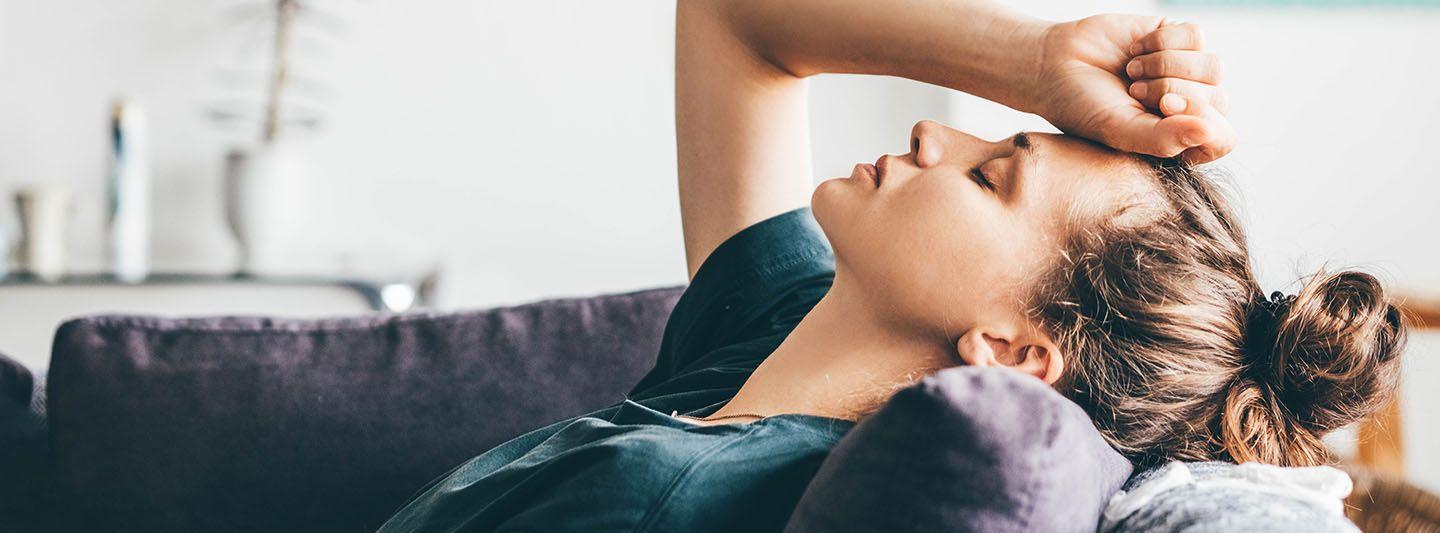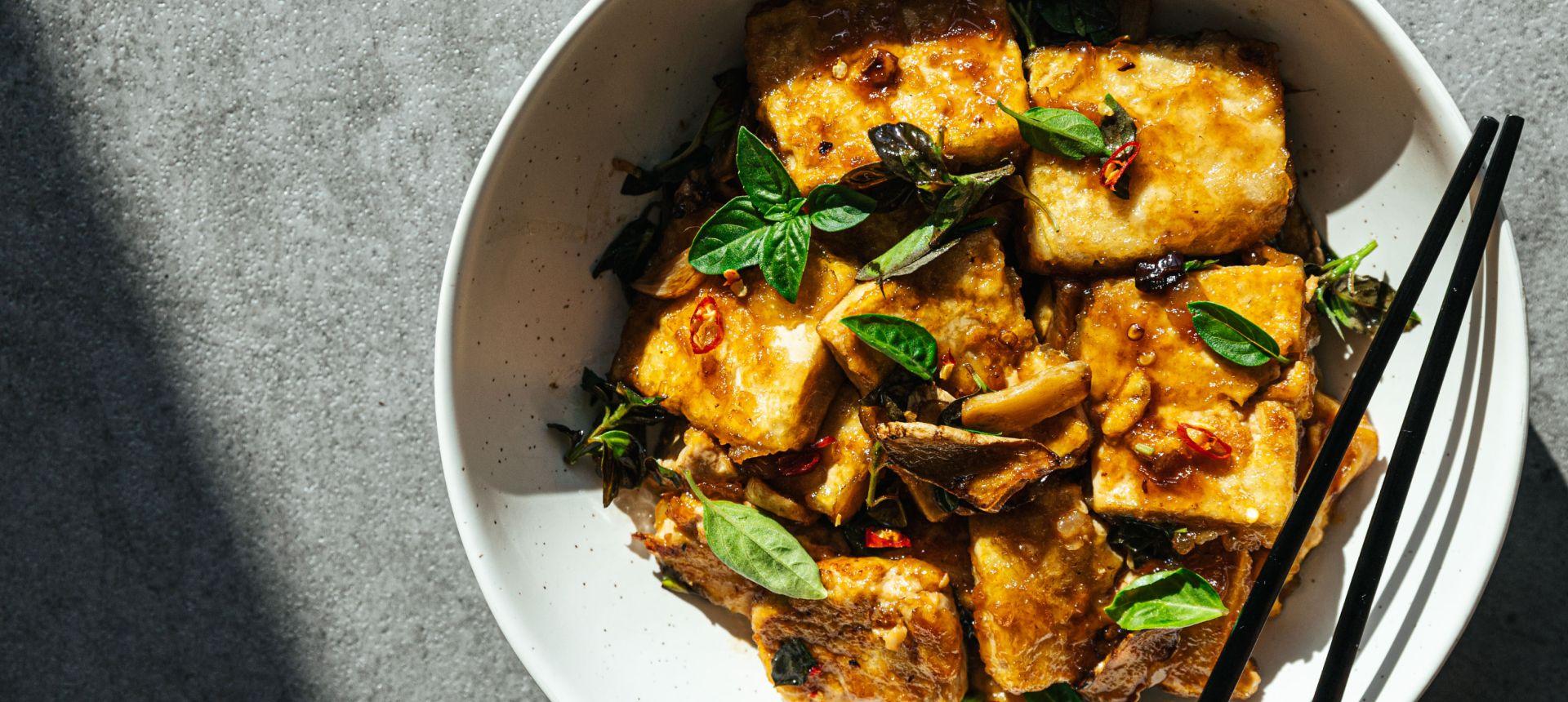Tired after eating? Here are the possible causes and tips to avoid tiredness
Glucose levels impact if you feel tired after eating. Here’s everything you need to know about why you get so tired after eating.
Emily Shiffer,
Contributing Writer
Andrea Givens, MS, RD, CSSD,
Medical Affairs
Published:
April 14, 2025
Updated:
April 29, 2025
Read time:
4 minutes

Feeling tired after eating is a common occurrence which may be explained partially by your glucose response to what you ate.
Feeling tired after you eat varies depending on what, when, and how much you eat but focusing on eating to promote steady glucose may help avoid the post-meal slump.
Start with tracking your diet and lifestyle choices and how those impact your glucose by using a biosensor like Lingo.
Start Lingo today for just $49
Learn how your body responds to food and exercise with a 2-week plan*, no commitment.
Buy now
Feeling sleepy after eating has a scientific name: postprandial somnolence, better known as a food coma. One cause of getting tired post-meal is sudden changes in glucose as your body works to digest your food. Your glucose may be higher or lower after you eat, depending on a number of factors, which can cause after-meal drowsiness.
Below, we explain what’s going on in your body and how you can avoid that tired feeling after eating.
What are the causes of tiredness after eating?
To understand why you may feel tired after eating, let’s break down the process of food digestion.
When you eat, your body breaks down carbohydrates into glucose. This glucose is absorbed from your gut into the bloodstream, where it can be shuttled into your cells (with the help of insulin) and metabolized for energy.
This is the normal process every time you eat carbohydrates, and the rise in concentration of glucose in your blood depends on the amount and type of carbohydrate you’ve consumed. If the carbohydrates you eat result in a large glucose spike, you may feel tired soon after. The sleepiness is partially due to an increase in compounds called cytokines that are released after eating foods that are high in carbohydrates, making you feel tired.
If this sounds familiar, the first thing to check is your diet. Meals consisting of typical “Western” diet foods (think foods high in carbohydrates and fat, like processed meat, fast food, and soft drinks) have been shown to cause sleepiness after eating. 1
Certain drinks are also linked to tiredness. Alcohol causes sleepiness due to its effect on neurotransmitters in the brain. 2 You may also feel sleepy after imbibing because alcohol blocks the liver from making new glucose. 3 This can make glucose levels drop quickly, putting some at risk for hypoglycemia (low blood sugar). Normally, the liver makes glucose between meals and as you sleep. Alcohol disrupts this process.
There may also be other causes of sleepiness after eating, including skipping breakfast. While you may wake up not feeling hungry for that first meal, skipping breakfast and waiting a few hours to eat lunch may make you feel sleepier because you’re underfueled.
Other causes of sleepiness after eating include already being sleep-deprived and having low blood pressure (called postprandial hypotension).
Specific nutrients in food like tryptophan (an essential amino acid) and foods that increase melatonin production (a hormone that helps regulate the circadian rhythm) may also make you feel sleepier after eating. 4
Tips for avoiding tiredness after eating
Trying to avoid feeling sleepy after eating? Here are a few things to keep in mind:
Foods to eat and avoid: The same study that found Western diets led to sleepiness after meals found that diets rich in vegetables and healthy fats (like olive oil and dairy) resulted in less post-meal sleepiness. 1 Additional foods to consume to avoid feeling tired after eating include fruits, whole grains, and lean protein.
Go for a walk after eating: Rather than lying down on the couch after you eat, get your body moving. Taking a walk after a meal improves glucose metabolism, preventing you from feeling tired.
Avoid eating too late: Timing your meals is important for promoting quality sleep when you do need it. Aim to have your last meal 2 to 3 hours before bed for optimal sleep. 5
Stay hydrated: Hydration is essential for all metabolic processes, including using glucose. To avoid dehydration, women should aim to drink 11.5 cups daily and men should aim for 15.5 cups. 6
Are there any ways to track my body’s glucose response to food? Using a continuous glucose monitor (CGM) like Lingo can help you understand how your habits and patterns impact your glucose levels.
A final note from Lingo
Sleepiness after eating is a common phenomenon known as postprandial somnolence. One of the main causes of getting tired after eating is due to the types of foods you choose to eat. Eating large amounts of carbohydrates causes glucose to spike and create an inflammatory response. Instead, eating a diet rich in fruits, vegetables, lean protein, and healthy fat can help you avoid feeling tired after eating.
Using a CGM like Lingo can help you understand how your habits and patterns impact your glucose levels and can help you work toward limiting glucose spikes.
The Lingo Glucose System is intended for users 18 years and older not on insulin. It is NOT intended for diagnosis of diseases, including diabetes.
The Lingo program does not guarantee that everyone will achieve the same results as individual responses may vary. Consult your healthcare professional before making changes to your diet or exercise regimen or if you have an eating disorder or a history of eating disorders.
© 2025 Abbott. All rights reserved. The biosensor shape and appearance, Lingo, and related brand marks are marks and/or designs of the Abbott group of companies in various territories. Other marks are the property of their respective owners.
ALB-02413
Published:
April 14, 2025
Updated:
April 29, 2025
Read time:
4 minutes


Emily Shiffer is a contributing lifestyle and wellness writer at Lingo. She has worked as a writer for over 10 years, covering health, wellness, fitness, and more in publications such as Women’s Health and Runner’s World. Currently residing in Charleston, South Carolina, Emily enjoys instructing barre, surfing, and long walks on the beach with her miniature dachshund, Gertrude.


Andrea Givens, MS, RD, CSSD, is a Senior Medical Affairs Specialist and Health Coach at Lingo. Andrea has a passion for empowering individuals to leverage their unique physiology to optimize performance and health. She’s been a registered dietitian since 2010 and has been a board-certified specialist in sports dietetics since 2017. She holds master's degrees in both nutrition science and exercise physiology from San Diego State University.
More to explore on the blog

Reducing fatigue and mood swings with Lingo
Keeping your glucose steady can help also keep your mood and energy levels steady. Learn more about the impact of high-sugar meals here.
May 08, 2025|2 minutes

What does protein do and what are its health benefits?
The health benefits of protein span your whole body and include better heart and bone health, appetite control, and more.
December 13, 2024|6 minutes
A healthy choice for your inbox
Sign up for Lingo emails to get science-backed tips, special offers, and The Journey Newsletter.
Start Lingo today
for just $49
Learn how your body responds to food and exercise with a 2-week plan*, no commitment.
- 1 Lingo biosensor with minute-by-minute glucose monitoring.
- Full access to the Lingo app.
- Available over the counter. No prescription needed.
- Works with iOS and AndroidTM
Shop now
Free shipping | 30-day money-back guarantee†
*No commitment. This plan does not auto-renew.
†30-day money-back guarantee is for first time purchases only

